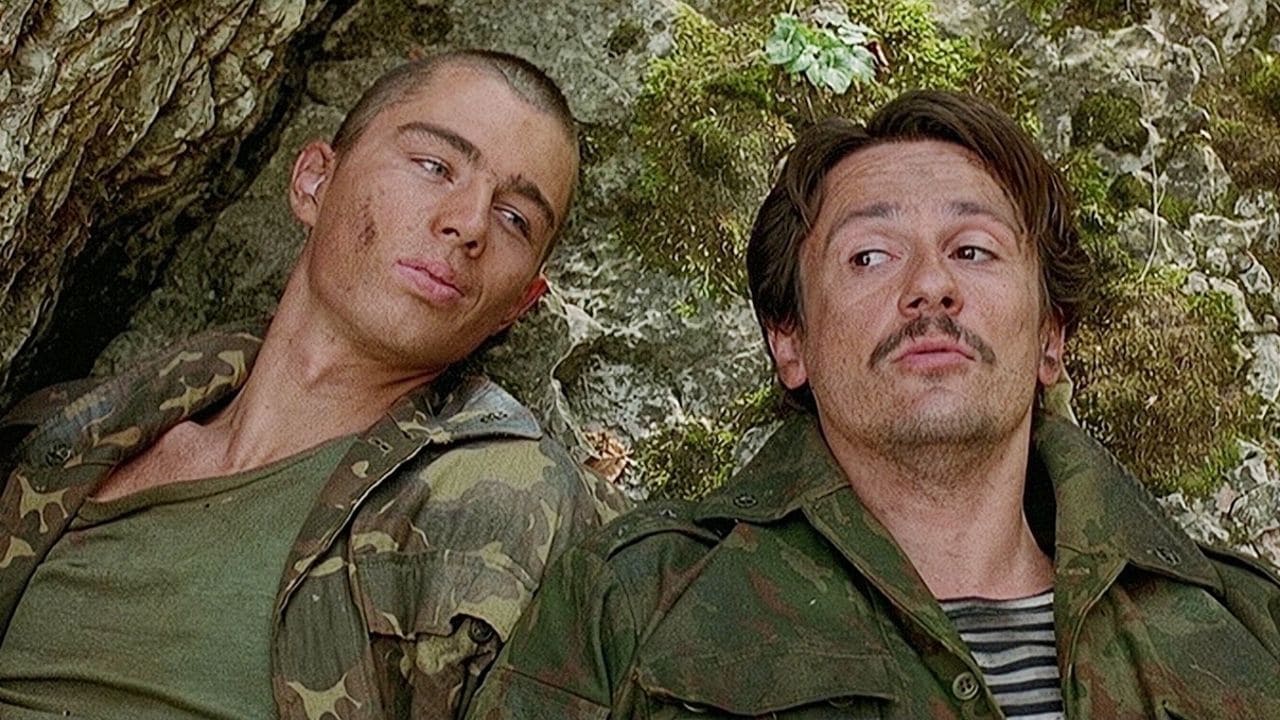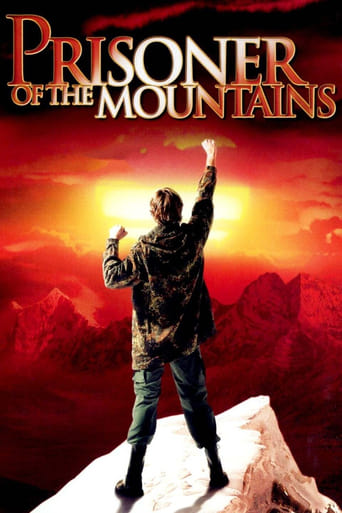adriennenoracarter
In Bodrov's Prisoner of the Mountain, Ivan (Vanya) has just entered the Russian army. He's barely uniformed by the time he is on his way to Chechnya. On the road into the mountains, the group comes under attack by a group of Chechen rebels. Vanya and Sacha are both knocked out and taken prisoner by the Chechens in the attack. One of the Chechens, Abdul, is hoping to trade the two Russians for his son, who is being held in a Russian army prison. The story that ensues shows both the cruelty and humanity that can be found in war. Both sides commit atrocities: the two captives kill the mute Hassan in their struggle as they attempt to escape—this is one cruelty on the Russian side. A Chechen father kills his son who has traded sides in order to work for the Russian police. Neither side has its hands clean. However, even in the midst of war, love can be found in this story— not just the fraternal love that grows between Vanya and Sacha, but love between enemies. Abdul's daughter Dina is kind to the captured soldiers, and in turn, Vanya shows her kindness she doesn't experience from her peers. She wants to help him escape, but he refuses to go because he knows that the rest of the villagers will never forgive her. Vanya, throughout the movie, represents an opposition to war. He never directly kills anyone, and never even learns how to properly handle a gun; even by the end of the movie, he is misfiring his weapons. When he is going to spar with the Chechen leader's nephew, he comes off as a pacifist. Even when he knows Sacha is dead, he doesn't turn to violence as a solution. A beautiful story with a beautiful backdrop, Prisoner of the Mountain is a true Russian gem.
G K
The film is simple, powerful and convincing. Two Russian soldiers (Oleg Menshikov and Sergei Bodrov Jr.) are captured by a Chechen father (Dzhemal Sikharulidze) determined to exchange them for his son, but the prisoners escape.Prisoner Of The Mountains is an off-centre war story that concentrates less on the horror of conflict than the humanity, even across cultural and national divides, and successfully sustains interest. The film was awarded a Crystal Globe at the 1996 Karlovy Vary International Film Festival, and the same year was nominated for an Academy Award for Best Foreign Language Film.
akrutul
Prisoner of the Mountains provides an inside look into the Russia/Chechnya conflict through the eyes of two captured Russian soldiers, Vania and Sacha. The unlikely duo forms a friendship out of their will to escape their imprisonment. Despite the serious basis for the story (the continuing war between the two countries), the film is very multifaceted in that it contains comedy, love, and suspense. In this respect, I greatly disagree with another user who described the film as `bleak, tedious, and uneventful.' The main reason this film succeeds is that it does not only focus on the war and battles between the two sides, but rather develops the underside of the conflict-the characters on both sides.This user likens this film to watching polar bears sleeping because violence only makes up ten per cent of the plot. I have seen movies that are as boring as this analogy. Prisoner of the Mountains does not qualify as this type of film. Bodrov incorporates many different types of scenes in the plot action that evoke a variety of emotions from the audience. There are serious scenes, such as when Sacha and Vania are captured, which elicit fear and apprehension in the viewer. In contrast, there are also more humorous scenes, as in when Vania continues to meddle with the gun he and Sacha stole, after Sacha warns him to be careful, and the gun fires, causing them to lose their only bullet. In this respect, Bodrov makes his film very well-rounded by incorporating various types of scenes that play to different emotions. While the central plot is serious in its portrayal of the war, Bodrov includes less intense scenes in order make the film more interesting and develop the personalities of the characters. The scenes in which Vania and Sacha are shown `getting drunk, whittling, chatting with passers-by, and making friends with their captors' serve to help the audience understand the backgrounds of all of the characters, as well as show character transformation. Through discussions between the two soldiers, the audience discovers that Sacha's at first exterior most likely results from the fact that he is an orphan. In time, we see how Sacha grows to respect Vania, despite his naive nature, and becomes a father-figure to the younger soldier, ultimately sacrificing his life for him. Moreover, we learn how Dina grows fond of Vania and ultimately defies her father to help him escape. In this respect, these scenes are the main point of the movie. In this viewer's desire to see violence, I think he missed the obvious. Bodrov wants the viewer to understand the feelings and motivations of characters on both sides of the conflict. Had the film shown one battle after another, the audience would not have been able to understand the characters because only fighting would have been shown. In this respect, the non-violent scenes are critical to character development as well as the overall impact of the film on the audience.While violence is the setting for the film, it is not meant to be the sole focus of the plot. Consequently, rating this film based on its lack of violence does not do it justice because violent scenes purposely comprise only a part of the action. This reaction would be similar to evaluating a straight play, which had a few musical numbers, as if it were a musical; you would obviously be let down and give it poor marks because your expectations would be too high. In this way, I do not feel that more violent scenes would have added anything to this film. Bodrov sought to illustrate the general tense atmosphere of the situation through the initial capture of the soldiers, the failed escape of the soldiers, the death of Abdoul's son and the expected shooting of Vania. These incidences of violence effectively convey the difficult environment to the audience. Additional killing would have been gratuitous in light of Bodrov's main emphasis of character development. Overall, I found this film to be incredibly engaging and interesting for its depiction of the bitter conflict between the two countries. As a westerner, I can say that the scenery was nice, but that it was not the only good aspect of the film as this viewer states. Perhaps the name and subject of this film is misleading. To a person who wants to see a lot of violence in films, Prisoner of the Mountains would not be my first recommendation. To this viewer, I would suggest The Betrayed, another film on the Russian/Chechnya conflict with significant violent footage. In forming impressions of films, it is important to take into consideration why the director made the film as he/she did. In this instance, it is clear that Bodrov did not only want to present the violent nature of the war, but that he desired to explore the individuals behind the conflict.

